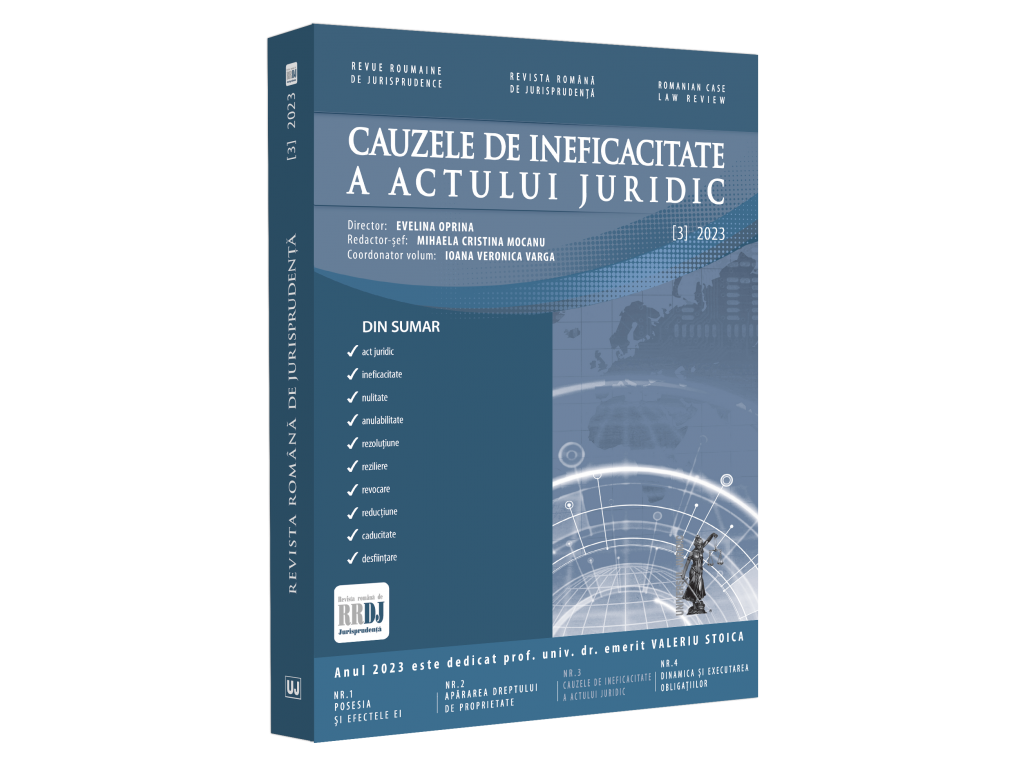Absolute nullity of the donation contract for lack of authentic form ad validitatem. Donation consisting of payment of the purchase price of a property directly to the seller. Property that became the property of the donor
JURISPRUDENȚĂ COMENTATĂ ȘI ADNOTATĂ
Abstract
The donation is a solemn, unilateral and gratuitous contract which implies on the one hand an agreement of will which must take the authentic form ad validitatem under penalty of absolute nullity according to Article 1.011 of the Civil Code, but also a tradition, a transfer of the donated property into the patrimony of the donee. This "tradition" has acquired a broader meaning in case law in the sense that it does not only imply the physical movement of the donated property into the hands of the donee because when the object of the donation is a sum of money it can be transferred directly to the account of the seller. The donation "may be for money and for the transfer of ownership it is not necessary to actually hand it over to the donor, but it may be handed over by the donor directly to the seller, on behalf of the buyer of the donation".
A gift that does not take the form required by law, regulated for the very validity of the legal act, is subject to absolute nullity, unconditional on the fulfilment of other extrinsic conditions or the good faith of the contracting parties. The effect of the absolute nullity of the donation contract implies, under Article 1.254 para. (3) with application of Art. 1.246 para. (1) and Art. 1.247 para. (1) and (4) of the Civil Code, the reinstatement of the parties to the previous situation and the restitution of the services provided on the basis of the void act, in particular the restitution by the defendant of the sum of 1,379,610 lei from which it directly benefited.
A clear distinction must be made between the contract for the sale of the property, concluded in authentic form between the seller who owns the property and the purchasers, one of the purchasers being the defendant in the present case, an act in the conclusion of which the plaintiff did not participate directly and the validity of which is not at issue in the present case, and the donation contract between the plaintiff and the defendant which had to be in authentic form ad validitatem even though the sum of money donated was paid directly into the account of the seller of the property. In other words, one should not confuse the agreement of will between the donor and the donee, which must take the authentic form ad validitatem in the case of a donation, with the materialisation of this agreement, i.e. the execution of the void contract, which occurred through the transfer of the donated sum of money to the account of a third party.








